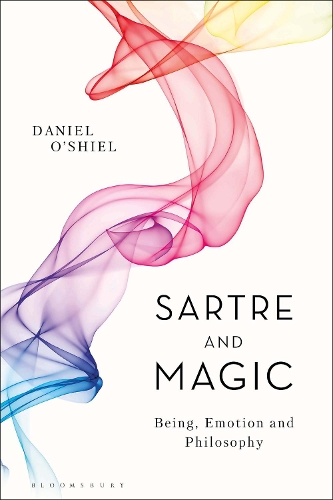
Sartre and Magic: Being, Emotion and Philosophy
(Paperback)
Available Formats
Publishing Details
Sartre and Magic: Being, Emotion and Philosophy
By (Author) Daniel O'Shiel
Bloomsbury Publishing PLC
Bloomsbury Academic
24th December 2020
United Kingdom
Classifications
Tertiary Education
Non Fiction
Social and political philosophy
Social and cultural anthropology
194
Physical Properties
Paperback
208
Width 156mm, Height 234mm
304g
Description
Jean-Paul Sartres technical and multifaceted concept of magic is central for understanding crucial elements of his early philosophy (1936-1943), not least his conception of the ego, emotion, the imaginary and value. Daniel O'Shiel follows the thread of magic throughout Sartres early philosophical work. Firstly, Sartres work on the ego (1936) shows a personal, reflective form of consciousness that is magically hypostasized onto the pre-reflective level. Secondly, emotion (1938) is inherently magical for Sartre because emotive qualities come to inhere in objects and thereby transform a world of pragmatism into one of captivation. Thirdly, analyses of The Imaginary (1940) reveal that anything we imagine is a spontaneous creation of consciousness that has the power to enchant and immerse us, even to the point of images holding sway over us. Culminating with Sartres ontological system of Being and Nothingness (1943), O'Shiel argues that Sartre does not do away with the concept, but in fact provides ontological roots for it. This is most evident in Sartres analyses of value, possession and language. A second part shows how such Sartrean magic is highly relevant for a number of concrete case studies: the arts, advertising, racism and stupidity, and certain instances of psychopathology. OShiel shows that Sartres magical being is important for any contemporary philosophical anthropology because it is essentially at work at the heart of many of our most significant experiences, both creative and damaging.
Reviews
O'Shiel's careful analysis of magical experience in Sartre's early philosophy is a highly original and insightful contribution to Sartre scholarship that suggests potentially fruitful new lines of inquiry for phenomenology and existential philosophy more generally. -- Jonathan Webber, Professor of Philosophy, Cardiff University, UK
This clear and illuminating book makes a valuable contribution to an understudied concept in Sartres early phenomenologymagic. Elucidating Sartres claim that human nature cannot be grasped exclusively through causal explanations, OShiel shows the creative power, costly pitfalls, and contemporary pertinence of magical thinking, individually and socially. -- Kate Kirkpatrick, Lecturer in Religion, Philosophy, and Culture, Kings College London, UK
Author Bio
Daniel O'Shiel is currently a postdoctoral researcher at the Instituto de Filosofa, Universidad Diego Portales, Santiago, Chile.
